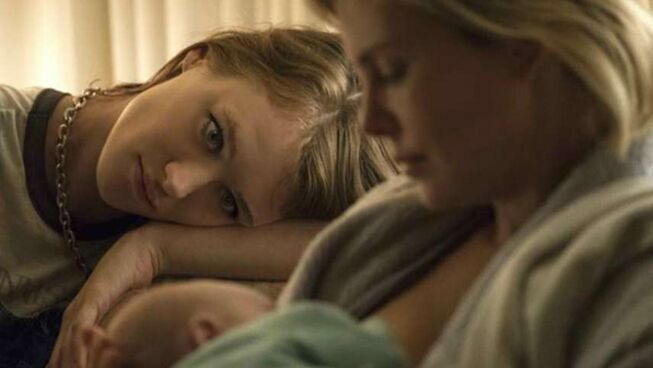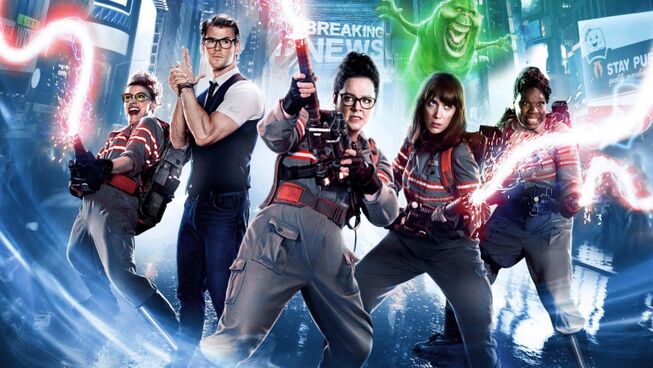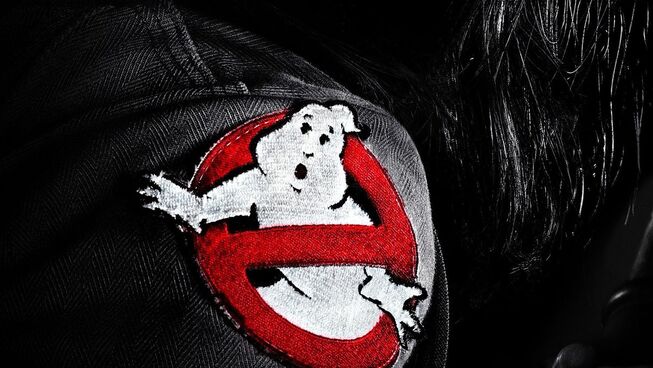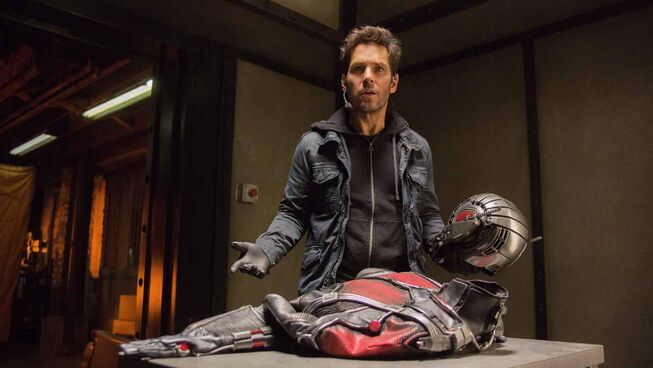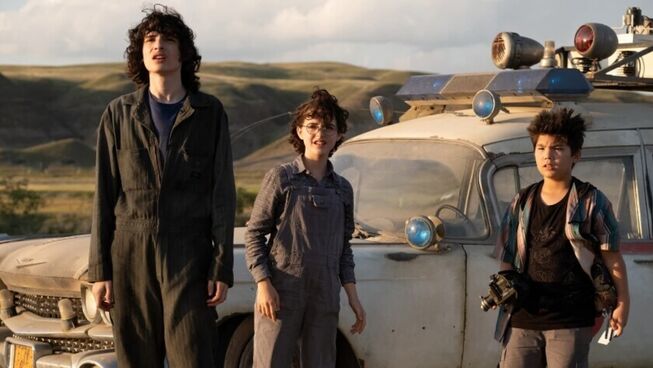
3.5 out of 5 stars
In 1984, Ghostbusters exploded onto the big screen, delighting critics and audiences alike while making a Stay-Puft-Marshmallow-Man-size pile of cash. A genuine cultural phenomenon, this film birthed a sequel, cartoon series, endless toy merchandise, video games and an ill-fated reboot/make in 2016. This time around, original director Ivan Reitman passes the proton-pack to his son Jason Reitman (Juno, Tully). He delivers a heartfelt, family-oriented story that feels more like The Goonies at times than Ghostbusters.
Carrie Coon (The Post) plays single mom Callie, who inherits an old dirt farm in Oklahoma from her estranged father, Egon Spengler. She moves in with her teenage son Trevor (Stranger Things' Finn Wolfhard) and 12-year old daughter, Phoebe played wonderfully by McKenna Grace (Gifted). As the kids make friends with local teens, the youngest Spengler befriends Podcast (Logan Kim), an aspiring podcast star with one subscriber. At school, they are introduced to teacher and seismologist Gary Grooberson (Paul Rudd). As the Spenglers settle into the community, supernatural tremors begin rattling the foundation of the sleepy town. Phoebe and her new entourage must work together to discover what mysteries live beneath the tiny town.
Jason Reitman shows how he has made his own statement in front and behind the camera. He captures the magic in every frame that is reminiscent of 80’s Spielberg classics, while eliciting wonderful performances from his actors, especially the younger generation. McKenna Grace is the standout as the granddaughter of Egon. Her mannerisms scream Spengler, but this young actress can make the character her own rather than settling for a mere impersonation. Logan Kim is fantastic as Podcast, reminiscent of Chunk of The Goonies. While Paul Rudd excels at, well, being Paul Rudd. It is Coon and Grace who prove to be the backbone of this new rendition, as they seek closure for the unexplained abandonment of their once beloved father and grandfather, Egon.
From the beginning to end, this new chapter of the beloved franchise is all about family. One can sense both Reitmans behind the camera, side by side, crafting every shot with a deep love and attention to detail. Though this family theme provides some of the film's most sentimental and touching moments, it also provides what feels like thematic dissonance. Ghostbusters has always been about the conflict and ensuing comedy that emerge from disparate personalities working together. Thus, for the first three-fourths of the film, Afterlife almost doesn't feel like it is from the same franchise. It seems to be influenced by Jason Reitman’s art-house touch as he creates his own family drama within the same universe. If you are down for that interpretation, you may enjoy the payoff in the end. While this consideration may cause some fans to be disappointed, where the conclusion may lead you to audibly groan in your seat.
So much of what made the original work was Murray’s sardonic whit and the sharp script by Akroyd, Ramis and Moranis. The juxtaposition of a world-ending threat atop a skyscraper and the Fab-Four needing to climb 100 flights of stairs to stop it because the elevator is broken was ingenious yet straightforward comedy. The original Ghostbusters was indeed lightning in a bottle which has proven hard to recapture. Afterlife looks back with deep affection for its past but has a hard time creating its own identity. While it does the nostalgic heart good to feel the Speilburgian feels and watch kids bust new ghosts like Chomper (think of a new Slimmer). This outing begins to wear thin when you realise the main attraction is the nostalgia itself.
Reel Dialogue: The value of nostalgia (Potential spoilers)
What is fascinating about this new chapter is the central theme of closure. What becomes abundantly clear is the emotional and familial trauma resulting from a lack thereof. Coon and Grace’s lives are irrevocably impacted by their inability to bring to close their relationship with their estranged father and grandfather. It is a very relatable problem and one the film attests, cannot be resolved unless there is, in fact, an “Afterlife.” The human heart longs for resolution and closure, something science can’t promise or provide.
The Christian faith makes this promise for those who trust its central claims about Christ. Resolution and closure are possible for those who see beyond this life to the next, where the scales of justice will be balanced, every wrong accounted for and where eternal reunions can be celebrated. All this Jesus came to offer us freely by faith if we trust him. It also helps those who hope for closure to live this life free of bitterness and resentment. Closure can truly heal the heart.
And he said to him, “Truly, I say to you, today you will be with me in Paradise.” - Luke 23:43

